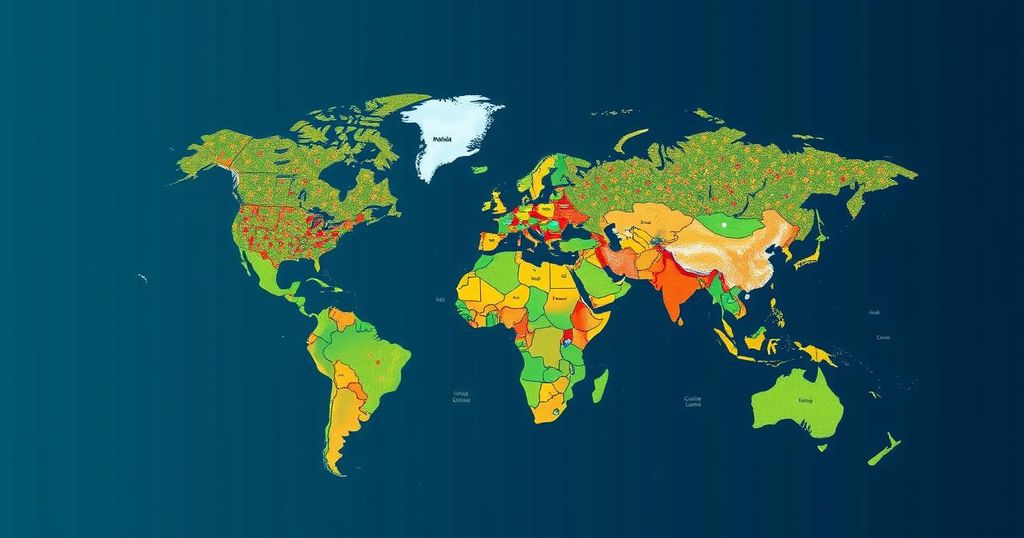Understanding COP29: Climate Talks and Their Global Implications

COP29, the UN climate change conference, will be held in Baku, Azerbaijan from November 11-22, 2023. It aims to enhance financial support to developing nations for climate action. However, notable absences of key leaders and Azerbaijan’s fossil fuel ambitions raise concerns about the conference’s effectiveness. Discussions will focus on financial strategies for climate resilience, further complicated by geopolitical crises and varying commitments among nations.
The upcoming COP29, hosted in Baku, Azerbaijan from November 11 to 22, represents a crucial juncture in the international fight against climate change. COP, which stands for “Conference of the Parties,” is the governing body of the UNFCCC, which was created to combat climate change. This year, the conference highlights the pressing need for increased financial support to developing nations tasked with reducing greenhouse gas emissions and adapting to climate change impacts. However, notable absences from key world leaders threaten to overshadow the event’s significance, which has attracted criticism regarding the host country’s human rights record and ambitions to expand fossil fuel production. This year’s discussions are expected to center on financing targets established under the Paris Agreement. Developed nations had committed to assist developing countries with financial resources aimed at combating climate issues while seeking to maintain a planetary temperature rise of less than 1.5°C. The need for a renewed financial strategy is paramount to rebuilding trust between countries, as many developing nations aim for climate finance to exceed $1 trillion annually by 2030. Nevertheless, financial strategies are complicated by historical classifications that exempt certain countries from contributing. The conference’s effectiveness hangs in the balance, compounded by other global crises and questions surrounding the retention of previous commitments to transition from fossil fuels.
COP29 is an integral part of international climate agreements and discussions, focused on the aftermath of the Paris Agreement of 2015, which set ambitious targets for mitigating climate change. This biennial conference convenes leaders from nearly 200 countries to assess progress and establish future targets regarding greenhouse gas emissions and financial commitments. This year, with the backdrop of significant leadership absences and the prevailing political climate, the conference serves as a litmus test for global climate diplomacy as countries navigate various geopolitical challenges.
In summary, COP29 is an essential platform for discussions on combating climate change, particularly concerning financial support for developing nations. The notable absence of key leaders and ongoing political distractions raise concerns about the conference’s effectiveness in crafting meaningful agreements. Nevertheless, the global community’s collective commitment to addressing climate change remains critical, especially in light of recent alarming climate events worldwide. The outcomes from COP29 could set the stage for future negotiations, underscoring the urgency of collaborative action against climate change.
Original Source: www.bbc.co.uk








